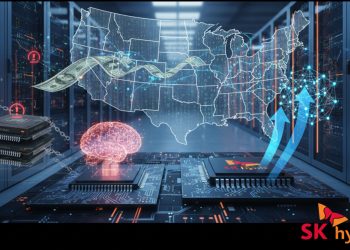South Korea plans to launch a new visa initiative aimed at drawing foreign experts in high-tech sectors, addressing the nation’s changing demographic situation. Justice Minister Park Sung-Jae revealed this proposal on Thursday, emphasizing the government’s commitment to fostering social harmony as the foreign population continues to increase.
The “Top-Tier” visa will target talent in advanced fields such as artificial intelligence (AI), quantum technology, and aerospace. Additionally, the program will extend post-graduation internship opportunities for international students and expand their employment options to include non-specialized sectors, providing greater flexibility faor international workers in South Korea.
As part of the new immigration policy, the South Korean government aims to address the growing need for foreign workers, particularly in high-tech industries. Currently, foreigners make up 2.61 million, or 5 percent, of the total population, and the Ministry of Justice anticipates this figure will exceed 3 million within the next five years.
Introducing the “Top-Tier” visa is central to this initiative. It targets highly skilled professionals in artificial intelligence, robotics, quantum technology, and aerospace, offering them enhanced immigration and residency benefits.
The “Top-Tier” visa is designed to ease the immigration process and improve living conditions for foreign workers and their families. It aims to secure over 100,000 additional technical and professional personnel within five years. This move is essential in filling gaps in industries affected by South Korea’s declining working-age population, particularly in emerging sectors and traditional fields like agriculture and manufacturing.
In addition to the “Top-Tier” visa, the government will introduce the “Youth Dream” visa, which is aimed at providing job and cultural experiences to young people from nations that fought alongside South Korea during the Korean War and countries that maintain strong economic ties with South Korea. This initiative is expected to boost international relations while offering new opportunities for global youth.
However, the expansion of immigration is not without challenges. Public opinion remains divided, with concerns over job competition and social integration. While many acknowledge that immigration can alleviate labor shortages, there are fears that an indiscriminate increase in foreign workers could lead to social conflicts. As a result, the government plans to selectively attract talent in critical sectors while taking measures to ensure social cohesion.
The Justice Ministry has indicated that the details of the new visa programs will be finalized through consultations with other government agencies. In addition to the “Top-Tier” visa, the government plans to introduce a separate work visa designed to help regional governments attract foreign workers. This program will align with regional development strategies, addressing the growing issue of depopulation in many rural areas.
This move mirrors efforts in countries like Japan, which has focused on attracting high-quality talent by revising visa policies. Japan’s proportion of skilled foreign workers reached 26.3% in 2022, compared to South Korea’s 6%, highlighting the need for South Korea to lower barriers for top-tier talent to remain competitive globally. The government recognizes that an effective immigration policy can significantly shape the country’s future, and attracting specialized foreign workers is crucial for boosting national competitiveness.
The government’s broader plan also includes tailored immigration policies for regions experiencing significant population declines. By offering customized visa solutions, the government aims to revitalize these areas and integrate foreign talent into local industries, providing much-needed support to rural economies and addressing the challenges of a shrinking workforce.
Also Read:
- Gov’t Launches Emergency Inspection of Kakao After Repeated Service Outages
- Samsung Electro-Mechanics Unveils World’s First Ultra-Small All-Solid-State Battery for Wearables
- LG and Ricoh Unite to Offer Digital Solutions for Modern Workplaces
- South Korean Shipbuilders to Bring Advanced Technology to India’s Maritime Sector







